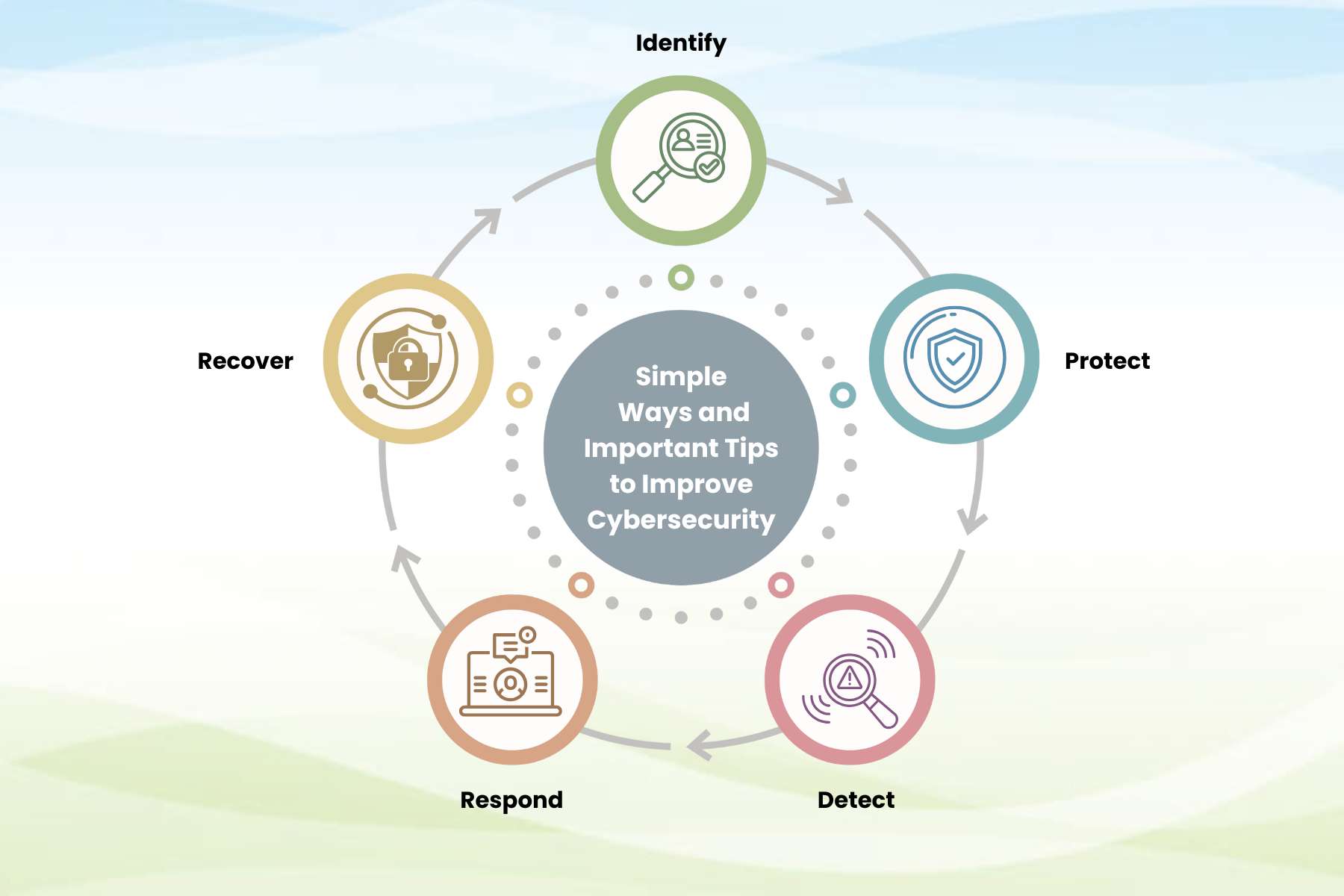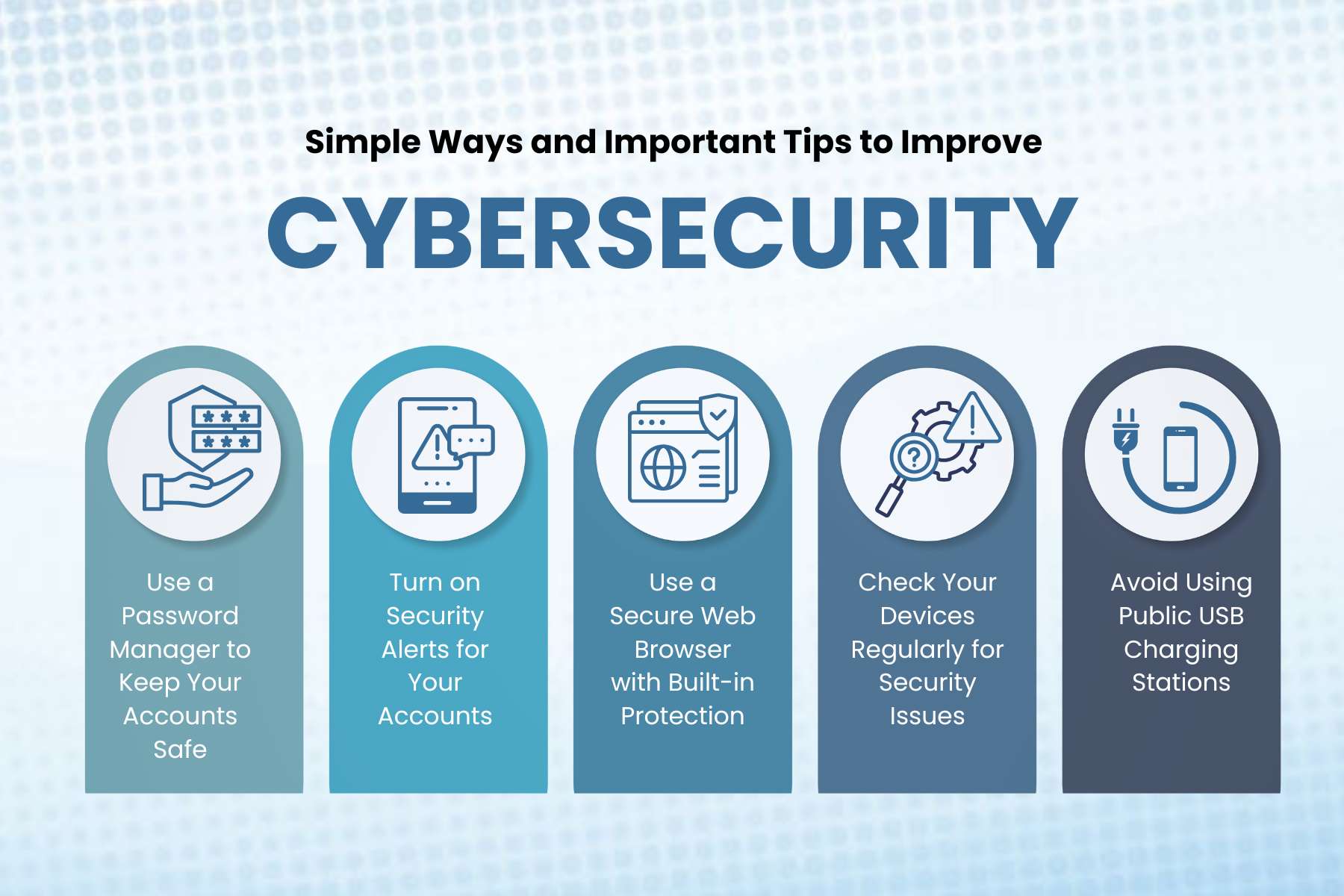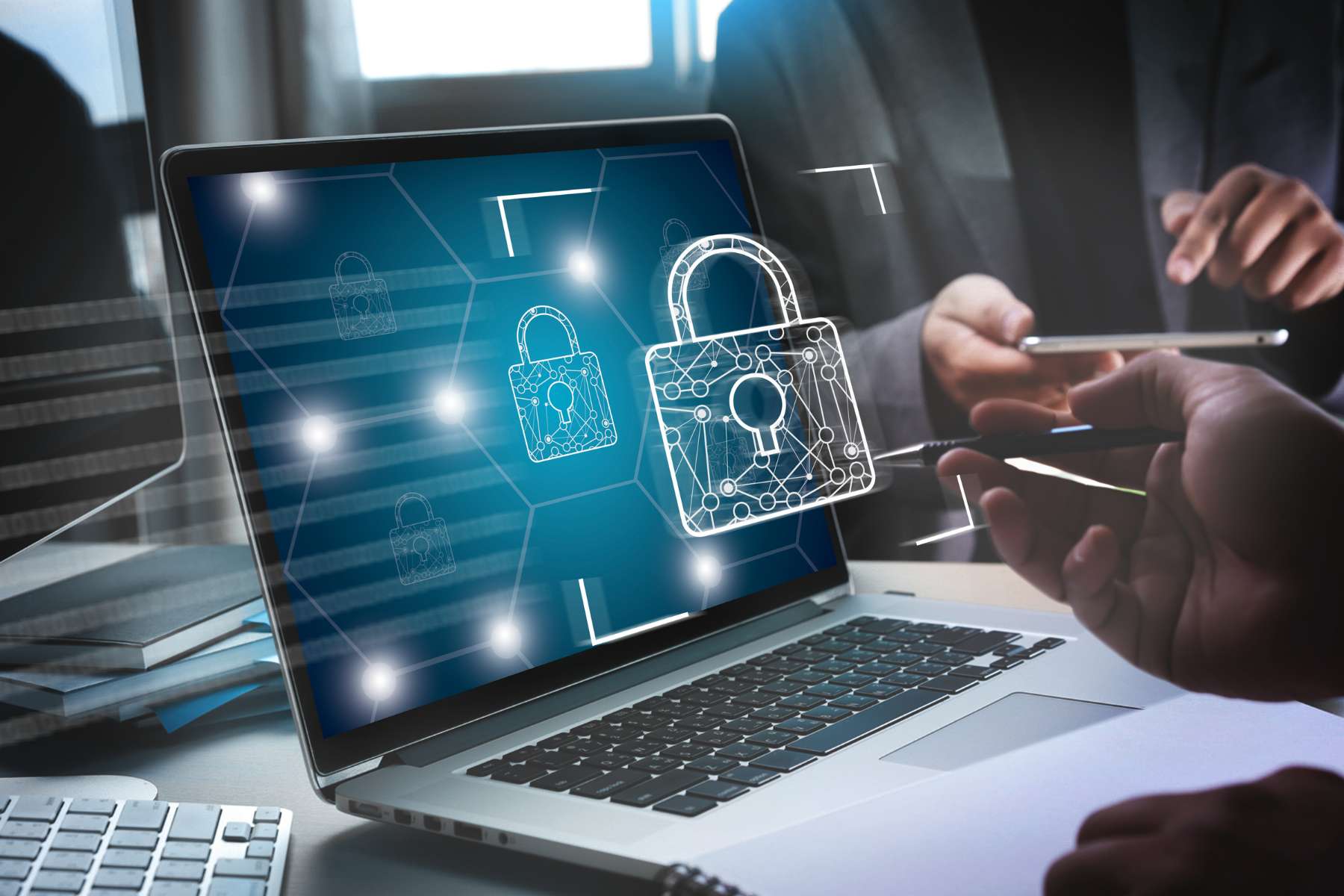Every 40 seconds, a new Cyber Attack happens somewhere in the world. These statistics are proof of how our lives are vulnerable in this digital world. From hackers trying to steal personal data to cybercriminals targeting different businesses, the threat to our online safety is real. In the year 2020, cybercrime damages total $1 trillion cost globally, this affects so many companies, and even governments. But there is good news, you don’t need to be a technical expert to protect yourself or your business from these cyber attacks. Simple steps can make a huge difference in improving cybersecurity. In this blog, we will explore some easy ways to improve cybersecurity along with some important tips.
What is Cybersecurity?
Cybersecurity is protecting systems, networks, and programs from digital attacks. These cyberattacks are usually attacks on accessing, changing, or destroying sensitive data information or interrupting normal processes. Implementing effective cybersecurity is challenging today because there are so many devices than people, and hackers are becoming more innovative. Proper cybersecurity has so many layers of protection spread across the computers, programs, networks, or data that one keeps safe. It is about protecting devices like computers, laptops, and smartphones and securing online accounts, networks, and other cloud services. There are various ways to improve cybersecurity. With advanced technology, cybersecurity aims to stay one step from cybercriminals and keep our information safe.
10 Simple Ways and Important Tips to Improve Cybersecurity

Here are some Simple Important Tips & Ways to improve cybersecurity improve your Cybersecurity,
1. Identify: Assess Your Risks
The first step to improving your Cybersecurity is to understand where your risks are. This means understanding what parts of your systems, networks, and information might be targeted by Cybercriminals. The important things you store, like personal data, financial information, or any valuable information that hackers want to steal.
Action Tip:
Check your systems regularly to spot any areas that need extra protection and be aware of what needs to be safeguarded.
2. Protect: Implement Strong Defenses
Once you have found your risks, the next step is to put strong defenses in place. This could involve encryption, installing antivirus software, setting firewalls, and securing devices with strong passwords. It’s also important to control who has access to sensitive information by limiting permissions. The main goal is to make it difficult for hackers to break into your system. This is one of the best ways to improve cybersecurity.
Action Tip:
Use layered security systems that add different layers of security, like encryption and secure access methods.
3. Detect: Monitor for Suspicious Activity
Even with strong security, it is important to check for signs of a Cyberattack. Using different security tools, you can detect unusual activities, like someone trying to log in multiple times without success or unexpected access to important files. If you find these signs, you must take action before they become a big problem. Detection can help prevent larger security breaches.
Action Tip:
Set up alerts if something happens on your accounts or systems.
4. Respond: Take Quick Action
If you detect a security issue or suspect a cyberattack, it is important to have a response plan ready. Which helps you handle the situation before it gets worse. That means knowing exactly which action is important to take, like informing the right people, disconnecting affected devices, and working with experts who fix the problem. The quicker you respond to the situation, the less damage hackers can do.
Action Tip:
Develop and create a simple step-by-step plan that includes clear steps for responding to different types of cyber-attacks regularly.
5. Recover: Learn and Strengthen
After a Cyberattack or security issue is handled, the next step is recovery. Recovery means getting your systems and data back to normal mode as soon as possible. It is also about understanding what went wrong and finding ways to prevent Cyberattacks. This is also one of the best ways to improve cybersecurity.
Action tip:
Review the previous incident and evaluate what worked, what did not, and what additional steps can be taken to your Cybersecurity moving forward.

6. Use a Password Manager to Keep Your Accounts Safe
A password manager securely stores and locks your passwords, helping you create unique passwords for each account without the need to remember them all. It reduces the risk of reusing weak passwords and helps protect your data from Hackers.
Action Tips:
Choose a password manager with end-to-end encryption. This ensures your passwords are safely secured and only you can access your stored passwords.
7. Turn on Security Alerts for Your Accounts
Many online services allow you to set up security alerts that warn you about unusual activity. These alerts can tell you if someone tries to log in from different devices, changes your account settings, or unsuccessful login attempts. Turning them on helps you to catch potential threats early and allows you to respond quickly.
Action Tip:
Check your account settings for security or login alerts. This is important for your banks, email, and social media accounts.
8. Use a Secure Web Browser with Built-in Protection
Not all web browsers are created equal when it comes to Cybersecurity. Some Web Browsers have built-in tools like privacy settings, Browsing options, and anti-phishing filters to help protect you. Using a browser that focuses on security can give you extra protection while you browse the internet.
Action Tip:
Use browsers like Mozilla Firefox, which are known for their privacy and strong security, and turn on any security extensions.
9. Check Your Devices Regularly for Security Issues

Most people do not think about checking their devices for security problems, but regular security check-ups can help you find weak spots, such as hidden malware, outdated apps, or unknown settings.
Action Tips:
Set a reminder to check your devices every month to ensure that any apps you do not remember installing, update your software, and scan for viruses. This helps keep your devices safe and running smoothly.
10. Avoid Using Public USB Charging Stations
Charging your phone at a public USB station in places like coffee shops, railway stations, or airports can be risky. Hackers can add malware to these charging ports, which can infect your phone when you plug it in. To avoid this, always use your charger and plug it directly into an electrical outlet. If that’s not possible, carry a portable battery pack.
Action Tip:
Use a USB data Blocker. It allows only power through and stops any data from transferring, keeping your phone safe.
Conclusion:
Ways to improve cybersecurity are important for the safety issue of our personal and business information. By using strong passwords, keeping software up to date, educating employees, and regularly backing up data, we can reduce the risks of cyber attacks. Implementing multi-factor authentication and staying aware of potential phishing scams also play important roles.
A proactive approach used tp to cybersecurity ensures a safer digital environment, protecting individuals and organizations from evolving online dangers.






